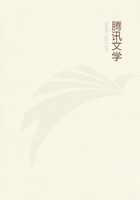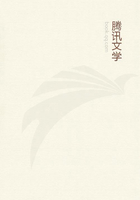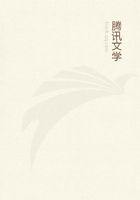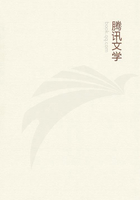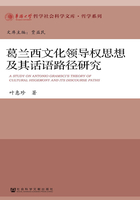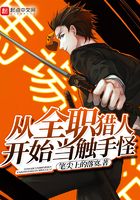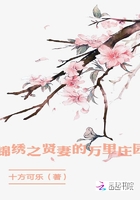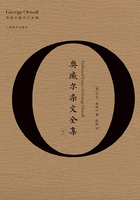Until comparatively late in his too short life,when he found this special path of his (and it is impossible to say whether the actual finding was in the case of Jonathan or in the case of Joseph),he did but flounder and slip.When he had found it,and was content to walk in it,he strode with as sure and steady a step as any other,even the greatest,of those who carry and hand on the torch of literature through the ages.But it is impossible to derive full satisfaction from his feats in this part of the race without some notion of his performances elsewhere;and I believe that such a notion will be supplied to the readers of his novels by the following volumes,in a very large number of cases,for the first time.
Fielding therefore found it ready to his hand,though the present condition of this example would lead us to suppose that he did not find his hand quite ready to it.Still,in the actual "journey,"there are touches enough of the master--not yet quite in his stage of mastery.It seemed particularly desirable not to close the series without some representation of the work to which Fielding gave the prime of his manhood,and from which,had he not,fortunately for English literature,been driven decidedly against his will,we had had in all probability no Joseph Andrews,and pretty certainly no Tom Jones.Fielding's periodical and dramatic work has been comparatively seldom reprinted,and has never yet been reprinted as a whole.The dramas indeed are open to two objections--the first,that they are not very "proper;"the second,and much more serious,that they do not redeem this want of propriety by the possession of any remarkable literary merit.Three (or two and part of a third)seemed to escape this double censure--the first two acts of the Author's Farce (practically a piece to themselves,for the Puppet Show which follows is almost entirely independent);the famous burlesque of Tom Thumb,which stands between the Rehearsal and the Critic,but nearer to the former;and Pasquin,the maturest example of Fielding's satiric work in drama.These accordingly have been selected;the rest I have read,and he who likes may read.I have read many worse things than even the worst of them,but not often worse things by so good a writer as Henry Fielding.The next question concerned the selection of writings more miscellaneous still,so as to give in little a complete idea of Fielding's various powers and experiments.Two difficulties beset this part of the task--want of space and the absence of anything so markedly good as absolutely to insist on inclusion.The Essay on Conversation,however,seemed pretty peremptorily to challenge a place.It is in a style which Fielding was very slow to abandon,which indeed has left strong traces even on his great novels;and if its mannerism is not now very attractive,the separate traits in it are often sharp and well-drawn.The book would not have been complete without a specimen or two of Fielding's journalism.The Champion,his first attempt of this kind,has not been drawn upon in consequence of the extreme difficulty of fixing with absolute certainty on Fielding's part in it.I do not know whether political prejudice interferes,more than I have usually found it interfere,with my judgment of the two Hanoverian-partisan papers of the '45time.But they certainly seem to me to fail in redeeming their dose of rancor and misrepresentation by any sufficient evidence of genius such as,to my taste,saves not only the party journalism in verse and prose of Swift and Canning and Praed on one side,but that of Wolcot and Moore and Sydney Smith on the other.Even the often-quoted journal of events in London under the Chevalier is overwrought and tedious.The best thing in the True Patriot seems to me to be Parson Adams'letter describing his adventure with a young "bowe"of his day;and this I select,together with one or two numbers of the Covent Garden Journal.I have not found in this latter anything more characteristic than Murphy's selection,though Mr.Dobson,with his unfailing kindness,lent me an original and unusually complete set of the Journal itself.
It is to the same kindness that I owe the opportunity of presenting the reader with something indisputably Fielding's and very characteristic of him,which Murphy did not print,and which has not,so far as I know,ever appeared either in a collection or a selection of Fielding's work.After the success of David Simple,Fielding gave his sister,for whom he had already written a preface to that novel,another preface for a set of Familiar Letters between the characters of David Simple and others.This preface Murphy reprinted;but he either did not notice,or did not choose to attend to,a note towards the end of the book attributing certain of the letters to the author of the preface,the attribution being accompanied by an agreeably warm and sisterly denunciation of those who ascribed to Fielding matter unworthy of him.From these the letter which I have chosen,describing a row on the Thames,seems to me not only characteristic,but,like all this miscellaneous work,interesting no less for its weakness than for its strength.In hardly any other instance known to me can we trace so clearly the influence of a suitable medium and form on the genius of the artist.There are some writers--Dryden is perhaps the greatest of them--to whom form and medium seem almost indifferent,their all-round craftsmanship being such that they can turn any kind and every style to their purpose.There are others,of whom I think our present author is the chief,who are never really at home but in one kind.In Fielding's case that kind was narrative of a peculiar sort,half-sentimental,half-satirical,and almost wholly sympathetic--narrative which has the singular gift of portraying the liveliest character and yet of admitting the widest disgression and soliloquy.
Until comparatively late in his too short life,when he found this special path of his (and it is impossible to say whether the actual finding was in the case of Jonathan or in the case of Joseph),he did but flounder and slip.When he had found it,and was content to walk in it,he strode with as sure and steady a step as any other,even the greatest,of those who carry and hand on the torch of literature through the ages.But it is impossible to derive full satisfaction from his feats in this part of the race without some notion of his performances elsewhere;and I believe that such a notion will be supplied to the readers of his novels by the following volumes,in a very large number of cases,for the first time.

